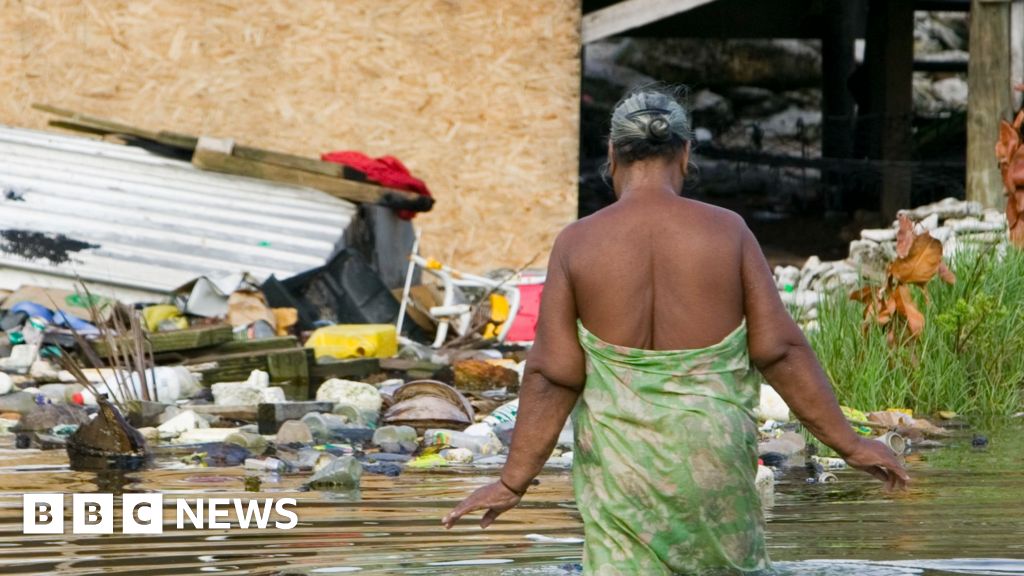
More than a third of Tuvalu’s population has applied for a groundbreaking climate visa that would allow them to permanently relocate to Australia. The visa, which opened for its first intake on June 16, has attracted significant interest, suggesting that the program could be vastly oversubscribed. Only 280 visas are available annually to Tuvalu citizens, selected through a random ballot. The initiative is being hailed by Australia’s foreign affairs department as a pivotal response to the looming threat of climate-induced displacement.
Tuvalu, a small Pacific archipelago, stands at just five meters above sea level, making it one of the most vulnerable nations to climate change. As of June 27, a total of 1,124 applications had been submitted, representing 4,052 individuals when family members are included. This is a significant portion of the island’s population, which was recorded at 10,643 in the 2022 census.
Understanding the Pacific Engagement Visa
The Pacific Engagement visa offers successful applicants indefinite permanent residency in Australia. This status includes the freedom to travel in and out of the country and access to various Australian support systems. These supports include the country’s Medicare system, childcare subsidies, and the ability to study at educational institutions with the same subsidization as Australian citizens. The entry fee for the 2025 ballot is set at A$25 (£11.93, $16.37), with applications closing on July 18.
This new visa category emerged from the Australia-Tuvalu Falepili Union, announced in August 2024. The agreement includes Australia’s commitment to defend Tuvalu against natural disasters, public health emergencies, and potential military threats. In a statement last year, Tuvalu’s Prime Minister Feleti Teo emphasized the significance of this legal commitment, noting that it recognizes Tuvalu’s future statehood and sovereignty despite the challenges posed by rising sea levels.
Climate Change: A Dire Threat to Tuvalu
Tuvalu’s precarious situation is emblematic of the broader challenges faced by low-lying island nations in the face of climate change. According to NASA scientists, the majority of Tuvalu’s land mass and critical infrastructure could be submerged below the current high tide level by 2050. This stark prediction underscores the urgency of finding viable solutions for the nation’s inhabitants.
“For the first time there is a country that has committed legally to recognize the future statehood and sovereignty of Tuvalu despite the detrimental impact of climate change-induced sea level rise,” said Prime Minister Feleti Teo.
Global Implications and Future Outlook
The introduction of the Pacific Engagement visa represents a significant shift in how countries address climate migration. As climate change continues to impact vulnerable regions, similar programs may become necessary on a global scale. Experts suggest that this visa could serve as a model for other nations grappling with the effects of climate displacement.
Meanwhile, the overwhelming response from Tuvalu’s citizens highlights the urgent need for international cooperation and innovative policy solutions. As the world grapples with the realities of climate change, initiatives like this could pave the way for more comprehensive strategies to support at-risk populations.
Looking ahead, the success of the Pacific Engagement visa will likely be closely monitored by other nations. Its implementation could provide valuable insights into the feasibility and effectiveness of climate migration policies. As Tuvalu’s citizens await the results of the ballot, the world watches, recognizing the broader implications of this pioneering initiative.





